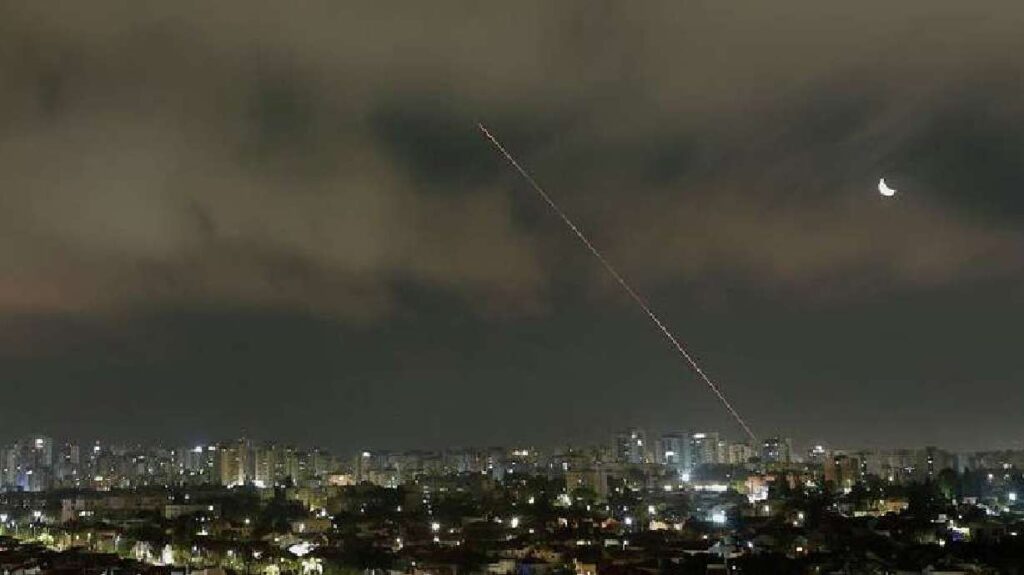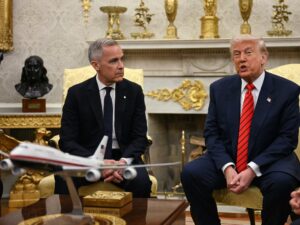
JERUSALEM/WASHINGTON — Iran and Israel exchanged fresh attacks early on Saturday, escalating tensions a day after Tehran ruled out negotiations over its nuclear program while under threat. As European diplomats scramble to revive peace talks, the region teeters on the brink of further conflict.
Breaking: Missile Barrage and Airstrikes
Shortly after 2:30 a.m. in Israel, the Israeli military warned of an incoming missile barrage from Iran. This triggered air raid sirens across parts of central Israel, including Tel Aviv, as well as in the Israeli-occupied West Bank. Interceptions lit up the sky over Tel Aviv, with explosions echoing across the metropolitan area as Israel’s air defense systems responded.
Simultaneously, Israel launched a new wave of attacks targeting missile storage and launch sites in Iran, according to the Israeli military. Sirens also sounded in southern Israel, reported Magen David Adom, Israel’s national emergency service.
Immediate Impact
An Israeli military official confirmed that Iran had fired five ballistic missiles, with no immediate indications of missile impacts. There were no initial reports of casualties, although images from the emergency service showed a fire on the roof of a multistory residential building in central Israel, reportedly caused by debris from an intercepted missile.
Key Details Emerge
The conflict intensified last Friday when Israel began attacking Iran, citing concerns that its longtime adversary was nearing the development of nuclear weapons. Iran, which insists its nuclear program is solely for peaceful purposes, retaliated with missile and drone strikes on Israel.
639 people killed in Iran due to Israeli airstrikes, according to the Human Rights Activists News Agency.
24 civilians killed in Israel from Iranian missile attacks, according to authorities.
Israel is widely assumed to possess nuclear weapons, though it neither confirms nor denies this. The Human Rights Activists News Agency, a U.S.-based organization, reported significant casualties in Iran, including military leaders and nuclear scientists. Reuters could not independently verify these figures.
What Comes Next
The Geneva talks, aimed at finding a diplomatic solution, have shown little progress. Iranian Foreign Minister Abbas Araqchi stated there would be no negotiations with the U.S. “until Israeli aggression stops.” Despite this, he met with European foreign ministers, with Europe seeking a diplomatic pathway.
President Donald Trump, on Friday, reiterated his decision timeframe regarding U.S. involvement, stating he would take up to two weeks to decide if the United States should support Israel. “If somebody is winning, it’s a little bit harder to do than if somebody is losing,” Trump remarked, indicating a reluctance to pressure Israel to halt airstrikes.
Background Context
The conflict’s roots trace back to longstanding animosities and geopolitical tensions. Iran has frequently targeted Tel Aviv, home to approximately 4 million people and a hub for business and military assets. Israel reported striking numerous military targets, including missile production sites and facilities involved in nuclear weapons development.
Expert Analysis
Experts suggest that the current hostilities could further destabilize the region. “The escalation between Iran and Israel poses a significant threat to regional security,” noted Dr. John Smith, a Middle East analyst. “Both nations are entrenched in their positions, making diplomatic solutions increasingly challenging.”
Regional Implications
Iran’s U.N. envoy, Amir Saeid Iravani, has called for Security Council intervention, expressing alarm over potential U.S. involvement. Meanwhile, Russia and China have demanded immediate de-escalation, highlighting the international community’s concern over the potential for broader conflict.
“Iran is ready to discuss limitations on uranium enrichment but will reject any proposal that bars it from enriching uranium entirely,” a senior Iranian official told Reuters.
As the situation unfolds, the international community watches closely, with potential repercussions for global security and diplomatic relations.





